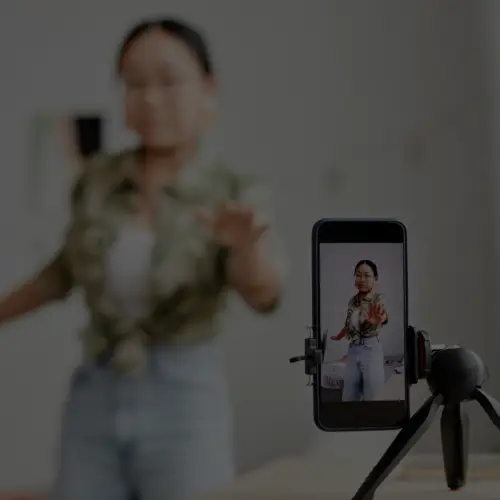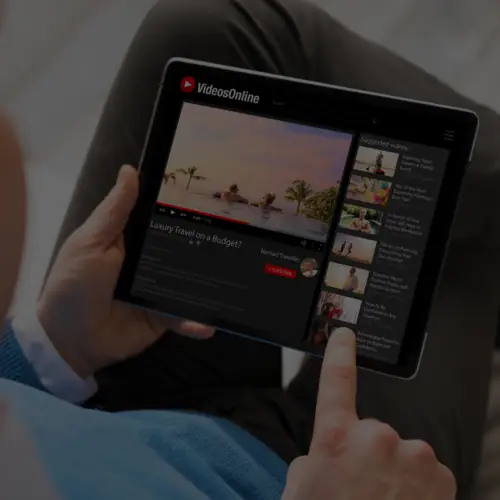26 Aug 4 Ways Foursquare Can Survive in the Facebook Places Era
In case you hadn’t heard, Facebook launched yet another category-redefining feature last week. This time they shook up the still-emerging world of geo-location services, where buzz-worthy startups like Foursquare, Gowalla and Booyah (MyTown) had been steadily and somewhat quietly testing models, adding features, and building user bases.
Not anymore. While the jury is still out on the long-term impact of Facebook Places, one thing is clear: in one shot, Places took the idea of ”checking in” and made it both universal and effectively generic. With instant access to 500 million active users and near ubiquity on smartphones everywhere, Facebook Places has turned checking in from a cool and unique feature into a utility on par with sharing or liking.
Does that mean Foursquare and all the other pioneers who also offer geo-location check-ins are headed for Friendster status? Not necessarily, but it is clear that just offering a service to say “hey I’m here!” or even “I was here more than anybody else!” is no longer sufficient to make users stand up and care enough to keep using your service.
They have to quickly differentiate themselves from Facebook places by providing unique value to their users.
Already we’re seeing a second wave of geo-location companies doing just that. Companies such as SCVNGR, Shopkick, and TopGuest are narrowing their focus to provide unique and immediate value, in the form of coupons, rewards, or promotions. As a result, they are better positioned to weather the coming Facebook Places ubiquity.
So what’s the key to survival for geo-location companies in the era of Places?
Focus on Coupons and Discounts
Coupons are hot, and no, I never thought I’d see myself type that phrase. Coupons for me evoke childhood memories of the large Tupperware box stuff with glossy clippings from the Sunday paper that my mom diligently sorted and maintained. But the “new” coupons – online, targeted locally, and offering social purchase incentives – are one of the fastest growing marketing tools on the Web today, thanks to startups like Groupon and Living Social.
Foursquare and others have had limited success in with targeted coupons and specials – in Foursquare’s case, you see them if you happen to walk within 200 yards. All well and good, but the offerings so far seem sparse, particularly if you live outside heavily populated and tech savvy metro areas. Foursquare, Gowalla and others need to reinvent how coupons are targeted, shared, and pared with check-in data before Facebook does it first.
Embrace the Loyalty Programs
Who doesn’t love accumulating points you can redeem for cool stuff? If you have a credit card, fly a lot, or shop at almost any major grocery chain, you’re probably up to your eyeballs in loyalty program memberships. New services such as Shopkick and TopGuest are tailored specifically at working with companies to add a geo-location kick to their loyalty programs, rewarding the check-in with benefits most of us are already familiar with and value.
If anything, I expect this kind of geo-location benefit to become more common. Facebook itself is creating an enormous stream of user check-in data through Places, and I wouldn’t be surprised to see it begin to partner with major brands to feed that data into their loyalty programs. The opportunity lies in doing it faster, and better, than Facebook.
Get Beyond the Mayor
Earlier this week Dennis Crowley, co-founder of Foursquare, did an interview with the UK’s Telegraph:
“Crowley believes that Foursqaure’s gaming mechanics, such as the prospect of a user becoming the ‘mayor’ of a location they have visited the most frequently, will keep people far more enticed into using his service over the likes of Places.”
Maybe that was true in the early goings, when becoming “mayor” of a hot location was both fun and achievable, and in some cases resulted in a reward (see: Starbucks). But as the service gains more users, becoming mayor of the places you actually care about can quickly become such a remote possibility that it’s not worth caring about. Beyond the increasingly remote chance of becoming mayor, and some vaguely entertaining but otherwise useless badges, where’s the fun?
Social gaming can be a huge draw for geo-location, but the rewards need to be both more tangible and accessible for the majority of users to make it matter in the battle for check-ins.
Make Privacy a Differentiator
When Places launched, I immediately started checking in around town to get a feel for it, then popped over to my Facebook profile page to see what that looked like to friends. It’s then that it hit me: I have 400 friends on Facebook, and only a tiny portion of them do I want to have access to my whereabouts at any given time.
It’s not that I don’t trust them (seriously, I love ya all!), but I suspect many people are like me: Facebook is a hodgepodge of close and distant friends, high school buddies you haven’t talk to in years, some business contacts you maybe mixed in before shunting them off to LinkedIn, and so on. My Facebook friend list has long since stopped being a small group of trusted contacts whom I feel comfortable knowing I’m not at home guarding the family and valuables.
Foursquare, Gowalla, and others, thanks to their relative newness, have an opportunity to address this problem and in turn make privacy a distinctive selling point. For example, allow for the creation of friend groups, and selectively share location info with each group.
Or create a simple way to share only with a small group on that service for most check-ins, and optionally push some that you want everyone to see (“I’m at a conference! Let’s all meet up!”) to Facebook Places. Facebook is notorious for putting user privacy second, which creates a massive opening for someone else to put it first.
Is the Success of Facebook Places Inevitable?
Despite everything else in this article, not necessarily. For any number of reasons Places could stall out after all this early buzz: privacy issues, a broken feature set, or even just a plain boring user experience that fails to excite their users (see: Questions). Success or not, the simple existence of Places is going a long way to validating geo-location as a key part of the social media mix, and as a legitimate tool for marketers to include in their programs and campaigns. That can only be good for all the geo-location players out there, assuming they can capitalize on it fast enough.






